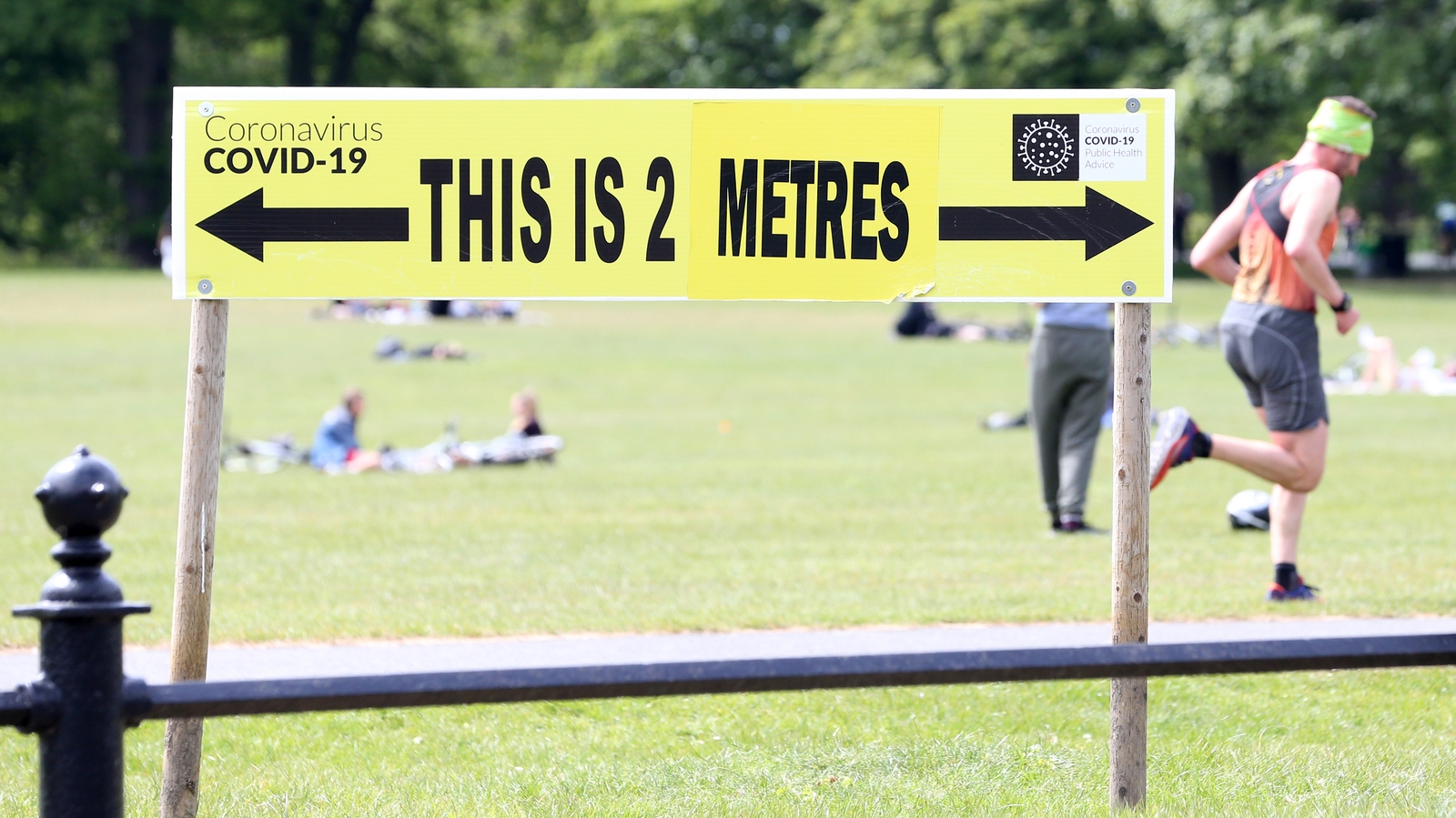Interesting article on the RTE site on whether 2 metres is needed for social distancing, and whether 1 metre would suffice.
This has implications for capacity in the health service and return to work for businesses.
The World Health Organization's Special Envoy on Covid-19, Dr David Nabarro, has said two-metre distance guidance "keeps you safe 99% of the time", but you can "greatly reduce your risk by maintaining a one-metre distance". Speaking on RTÉ's Today with Sarah McInerney, Dr Nabarro said that 70% of droplets from a person's cough will travel within one metre, and that "very few of them travel further than two metres". "The WHO and others have said the best distance to keep away from people if you want to avoid inhaling a droplet is two metres. That's because that will keep you safe 99% of the time but you can greatly reduce risk even at one metre because 70% of the droplets will stick within one metre."

 www.rte.ie
www.rte.ie
This has implications for capacity in the health service and return to work for businesses.
The World Health Organization's Special Envoy on Covid-19, Dr David Nabarro, has said two-metre distance guidance "keeps you safe 99% of the time", but you can "greatly reduce your risk by maintaining a one-metre distance". Speaking on RTÉ's Today with Sarah McInerney, Dr Nabarro said that 70% of droplets from a person's cough will travel within one metre, and that "very few of them travel further than two metres". "The WHO and others have said the best distance to keep away from people if you want to avoid inhaling a droplet is two metres. That's because that will keep you safe 99% of the time but you can greatly reduce risk even at one metre because 70% of the droplets will stick within one metre."

2m space 'keeps you safe 99% of the time' - WHO expert
The World Health Organization's Special Envoy on Covid-19, Dr David Nabarro, has said two-metre distance guidance "keeps you safe 99% of the time", but you can "greatly reduce your risk by maintaining a one-metre distance".